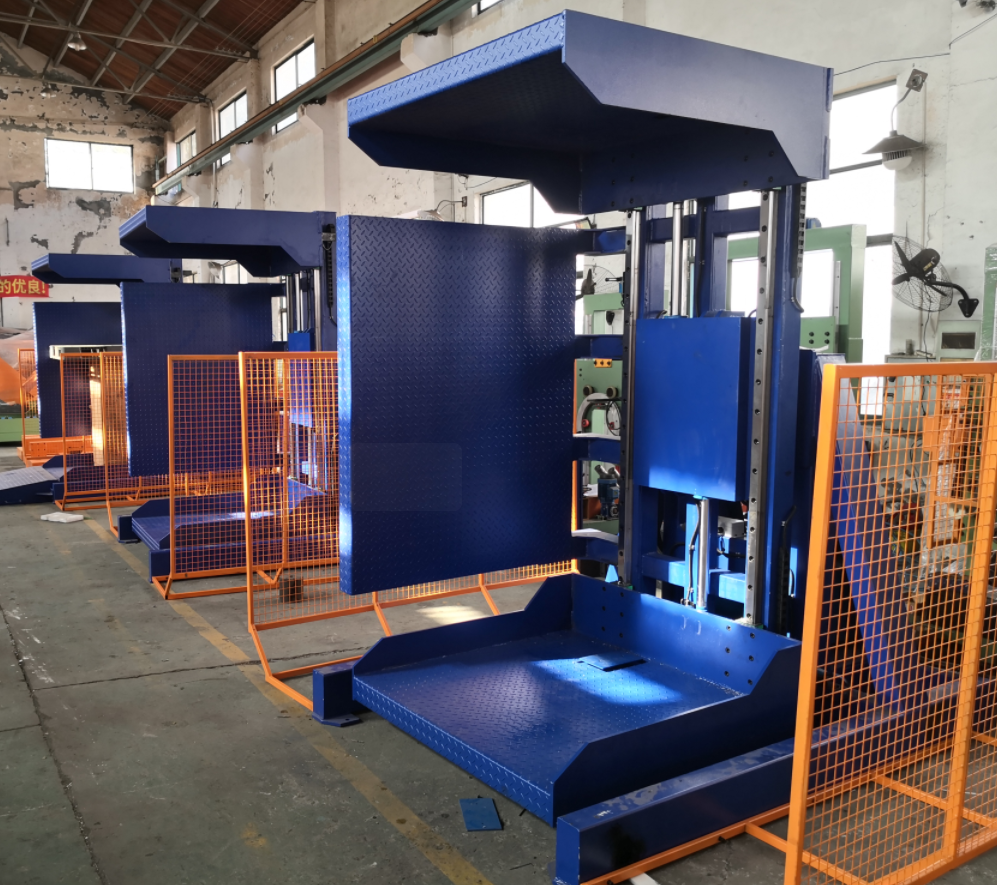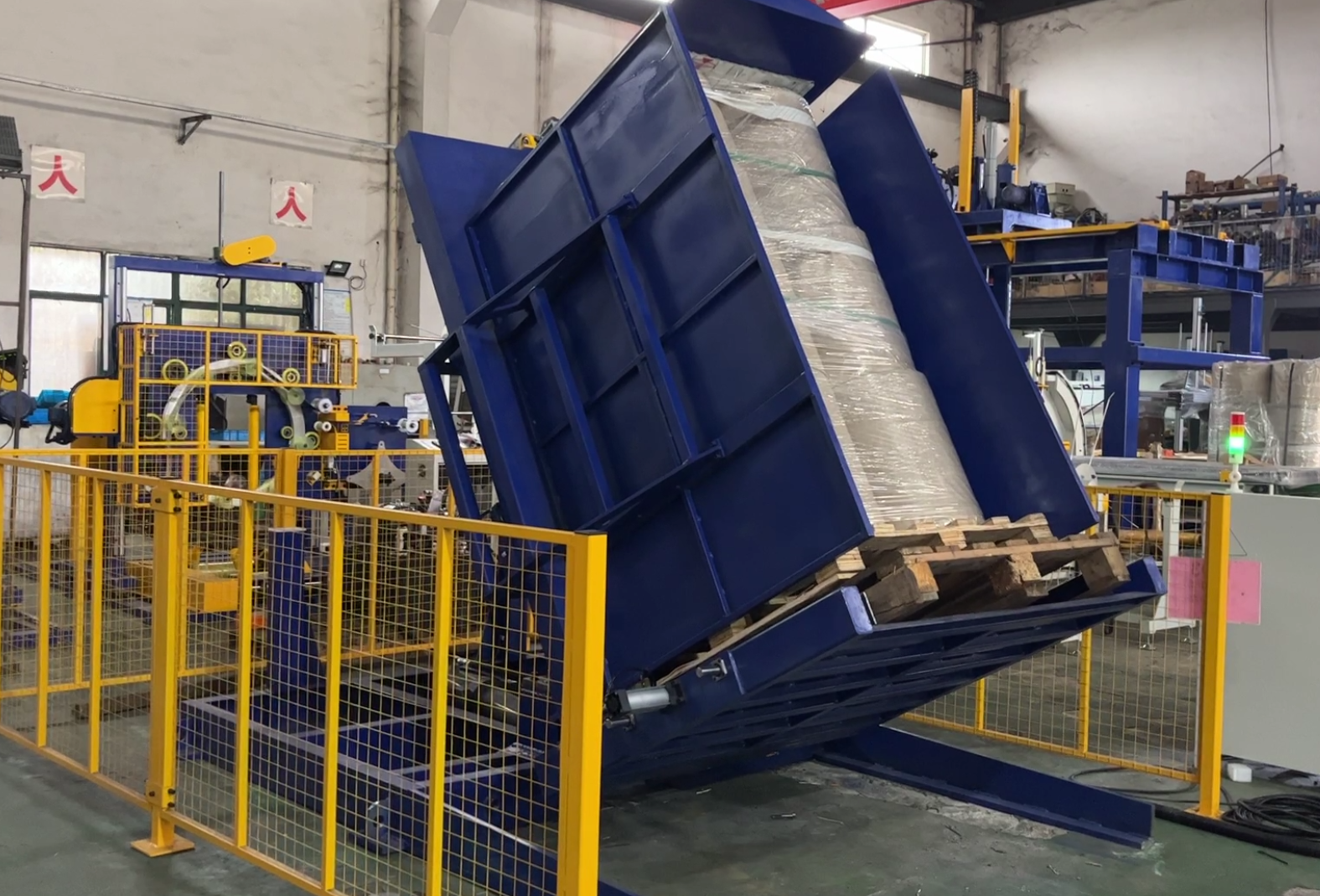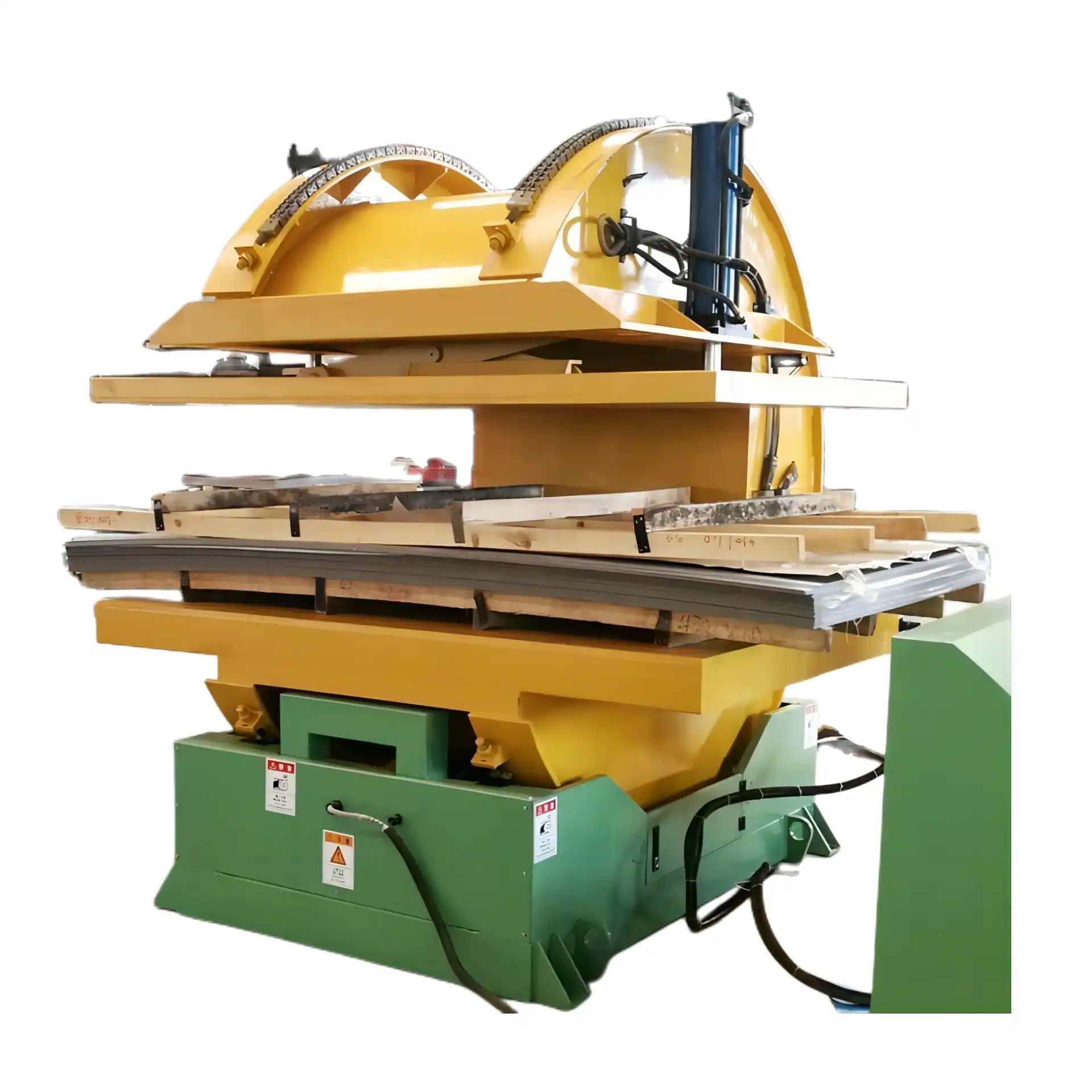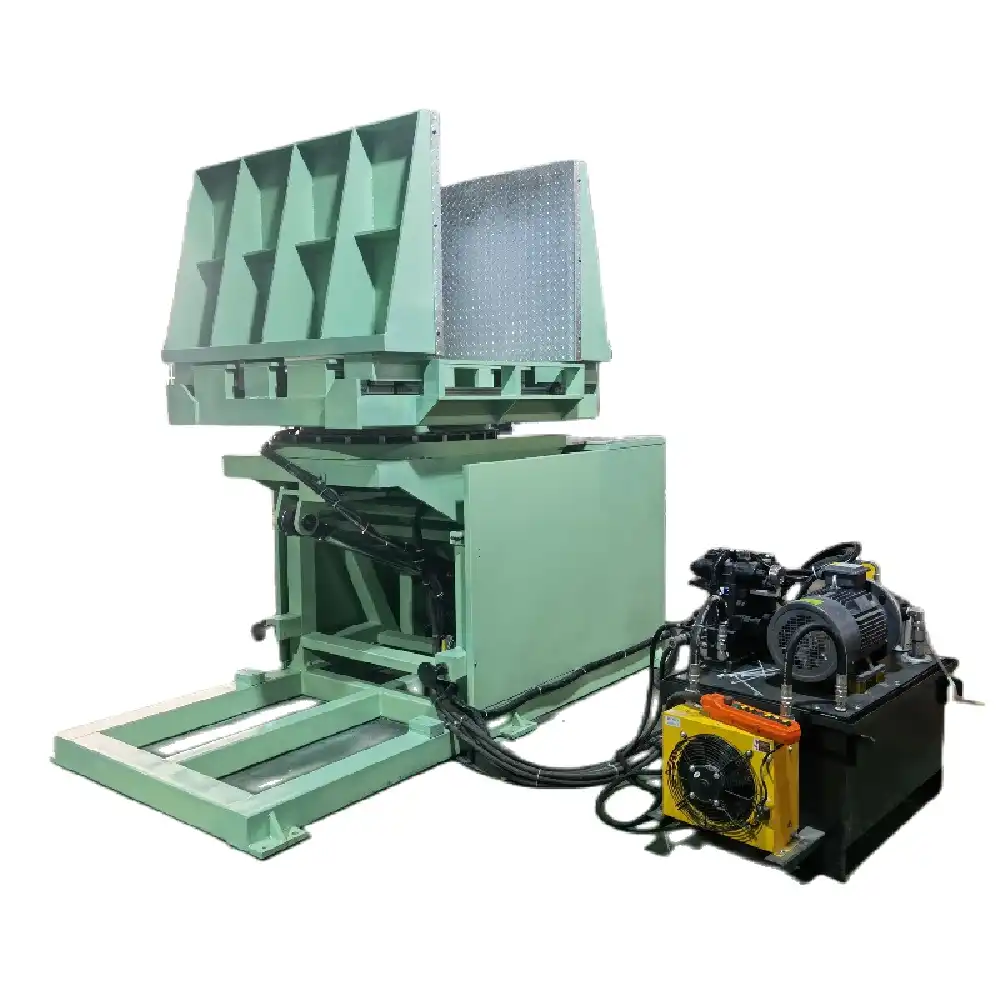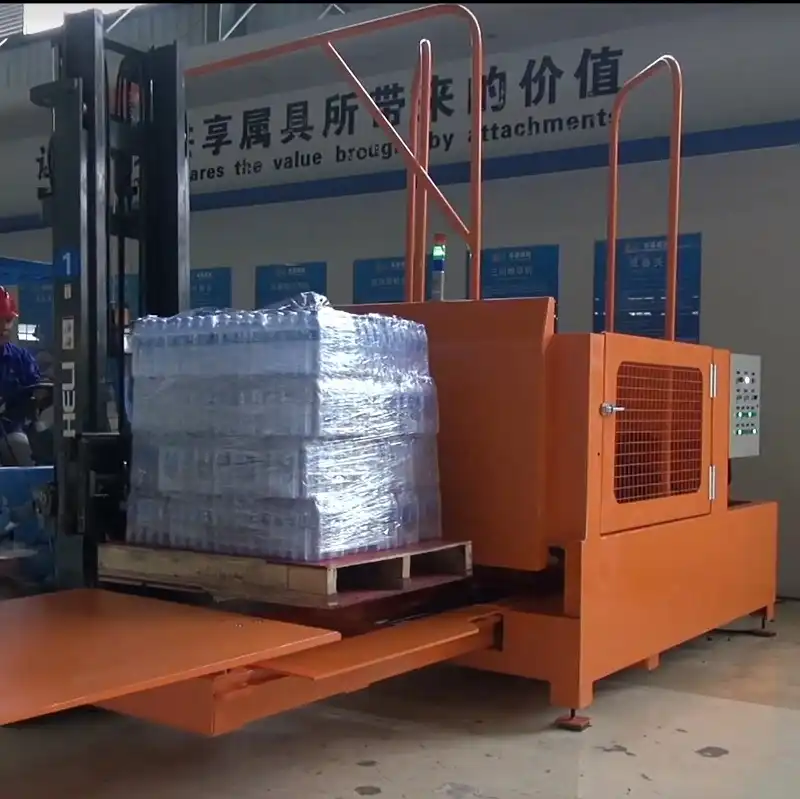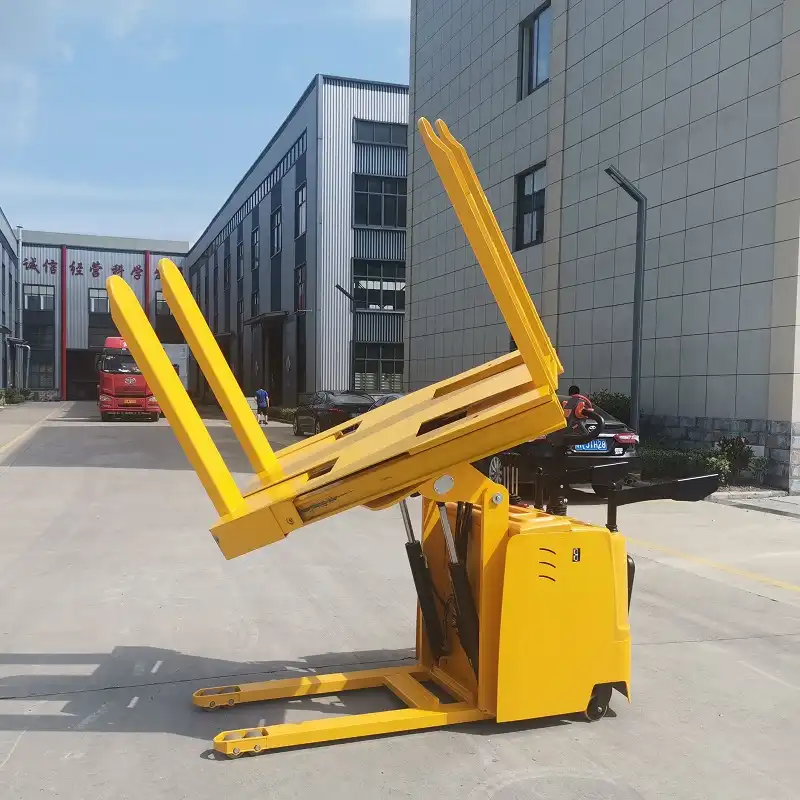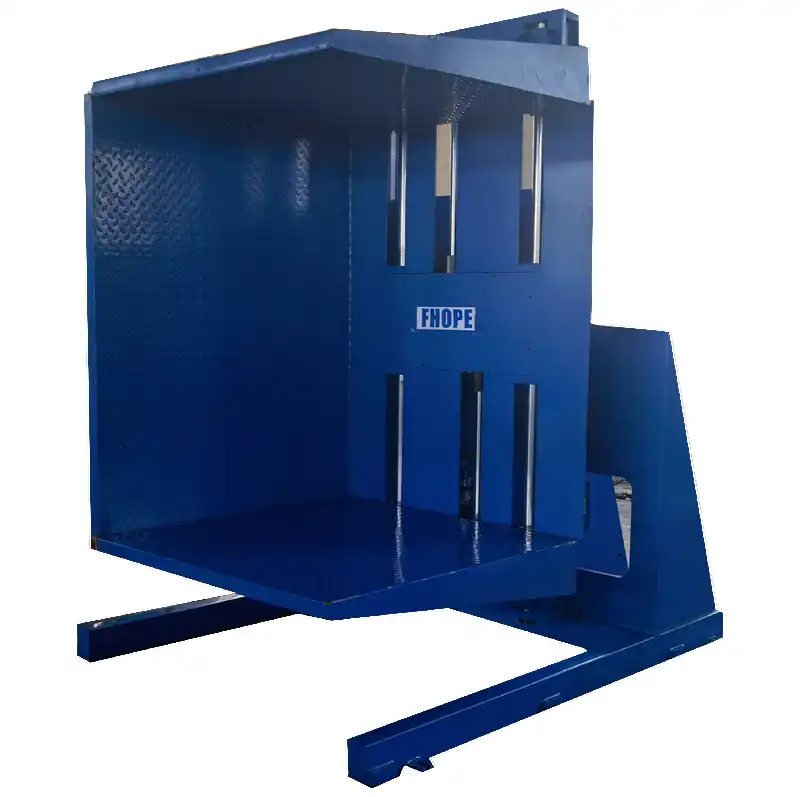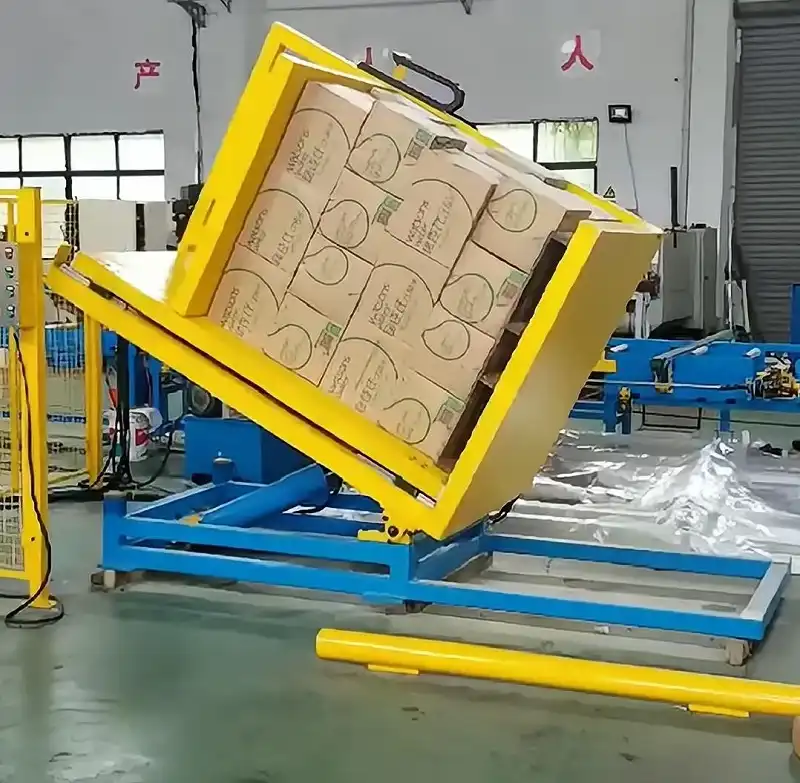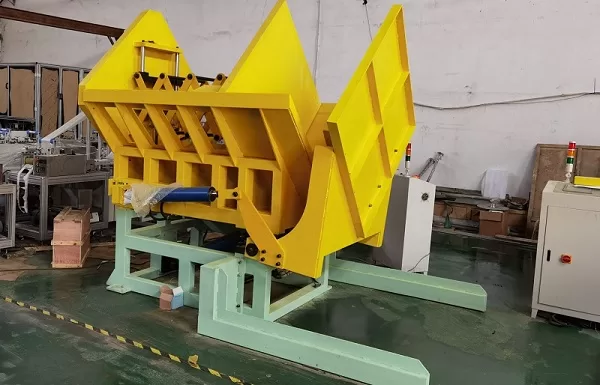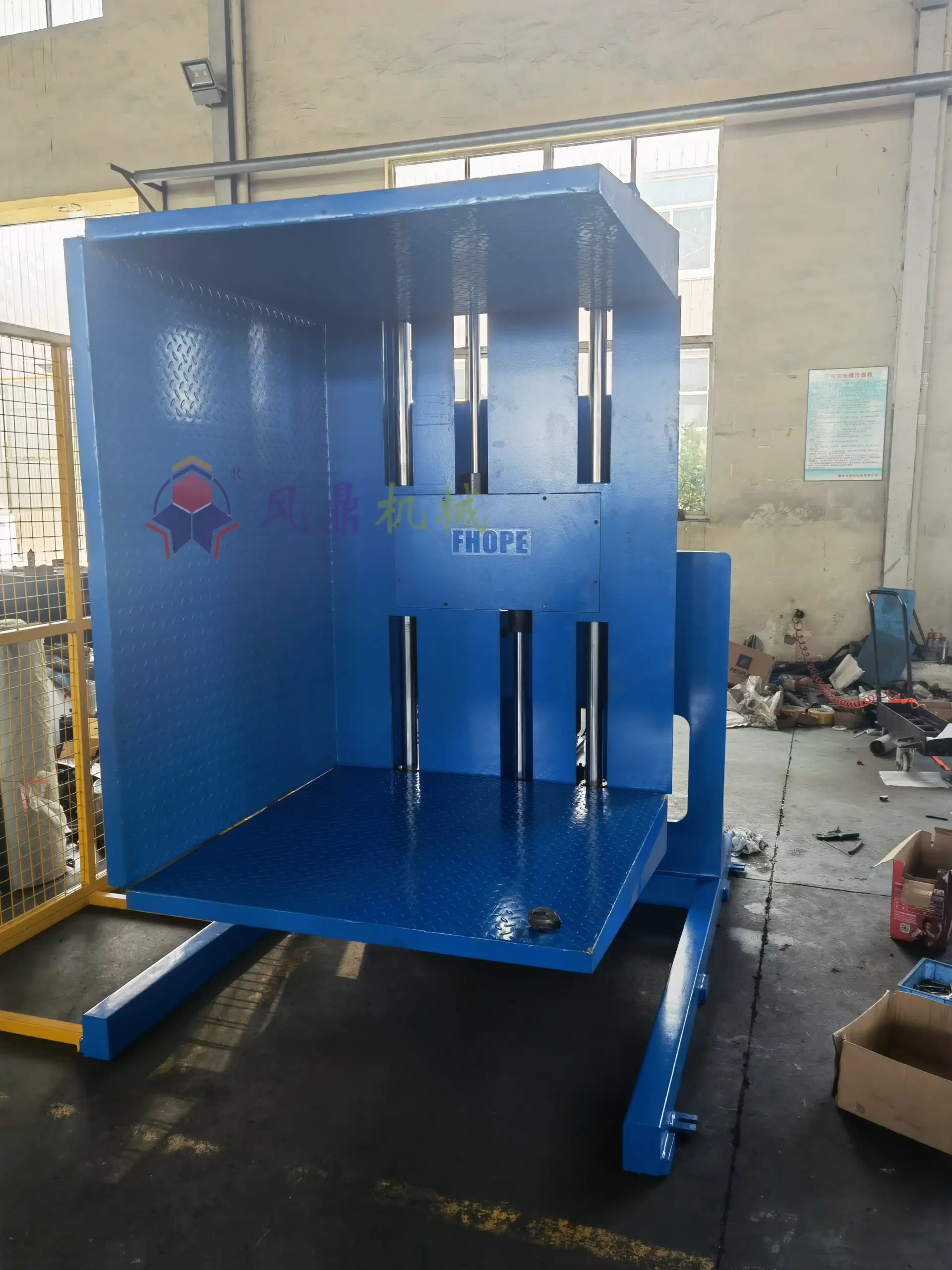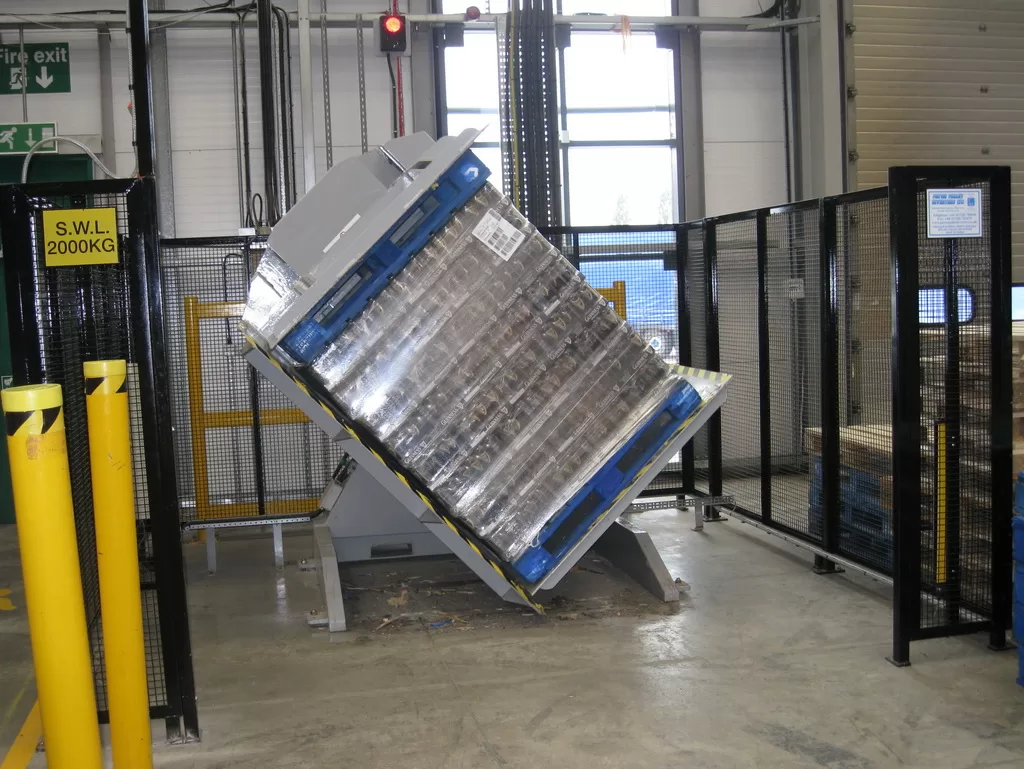Pallet Exchanger Manufacturer
As industries evolve, the need for efficient and safe material handling grows ever more critical. One piece of equipment that's gaining traction across various sectors is the pallet exchanger. Designed to streamline the process of transferring goods between pallets, it’s a technology that promises both operational efficiency and improved safety standards. For manufacturers looking to optimize their operations, the question becomes: how do you choose the right pallet exchanger manufacturer? Whether you’re in warehousing, manufacturing, or logistics, understanding the intricacies of pallet exchanger systems will help you make the best decision.
When choosing a pallet exchanger, it's not just about price or the number of features offered. It's about the quality of the equipment, the reliability of the manufacturer, and the long-term support they provide. The last thing you want is to invest in a piece of machinery that will need constant repairs or face difficulties during its integration into your system. As with any industrial equipment, durability and efficiency should be your top priorities.
It’s easy to get caught up in the endless list of specifications and features when evaluating different manufacturers. However, a more strategic approach involves looking beyond the brochure, understanding the manufacturer's reputation in the industry, and assessing how their products align with your operational needs. From ease of use to after-sales service, several factors should guide your decision.
What can a reliable pallet exchanger manufacturer bring to the table? If you’re considering an upgrade or new equipment, there are several compelling reasons to invest in quality machinery that not only meets but exceeds your expectations. It’s about creating a seamless experience across the supply chain while safeguarding your investment with machinery that works harder and lasts longer.
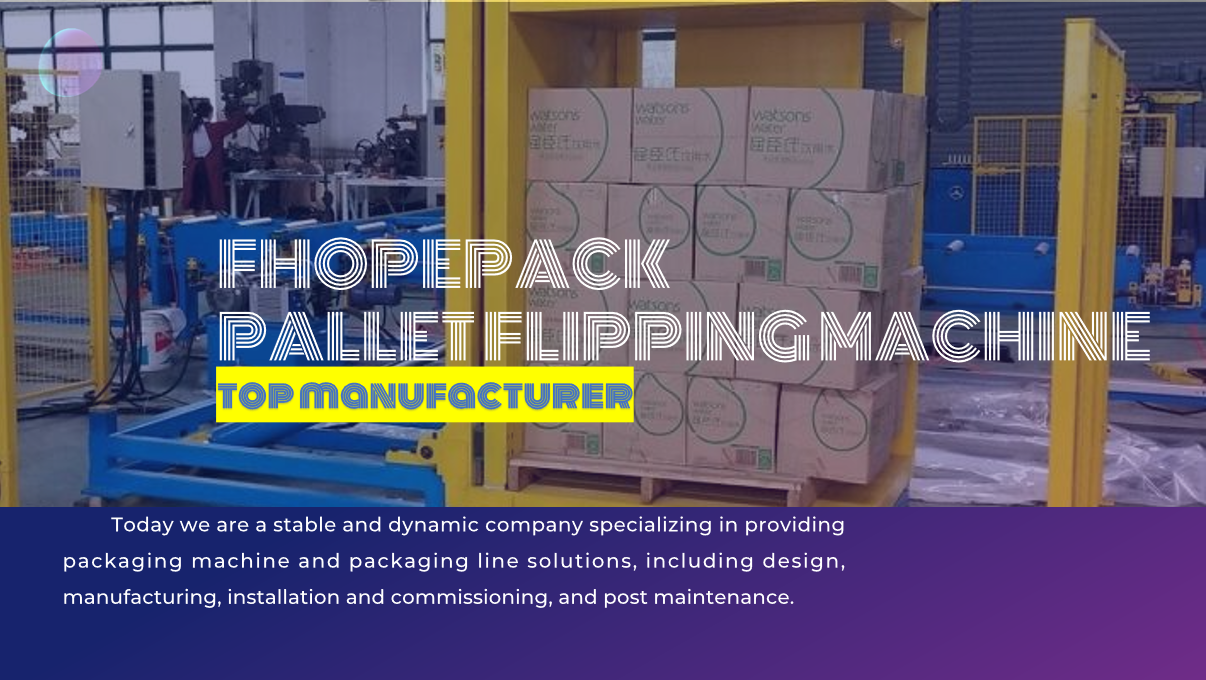
1. What Should You Look for When Choosing a Pallet Exchanger Manufacturer?
1.1 Understanding Manufacturer Reputation and Reliability
Selecting the right pallet exchanger manufacturer isn't solely about choosing the most well-known brand. It’s about understanding the reliability of the manufacturer and how well their products have stood the test of time. A company with a solid reputation in producing high-quality, durable machinery is often the safer bet. Reputation goes hand in hand with trust, and when it comes to critical equipment, that trust can make all the difference. A reliable manufacturer will also offer a clear history of product performance and provide references or case studies showcasing their machinery in action.
When evaluating reputation, consider reaching out to current or past customers. Genuine feedback, especially from those who have been using the equipment for years, provides valuable insight. Look beyond the glossy promotional material and dig into real-world applications and experiences. How well does the manufacturer respond to issues? Are their products known for their longevity? This kind of information can steer your decision in the right direction.
1.2 Will the Manufacturer Meet Your Specific Needs?
Every manufacturing or warehouse operation has unique requirements. When selecting a pallet exchanger, it’s essential to evaluate whether the manufacturer can customize solutions that match your needs. This includes assessing the size, type, and load-bearing capacity of the machine, as well as whether the manufacturer provides custom solutions for specific challenges in your industry. A one-size-fits-all approach rarely works when it comes to material handling equipment. Therefore, you need a manufacturer that takes the time to understand your workflow and offers tailored products that solve specific pain points.
Not only should the pallet exchanger align with your current setup, but it should also have the flexibility to adapt as your business grows. Look for manufacturers who provide scalable solutions that can evolve with changing demands. This could include features like adjustable heights, multiple pallet configurations, or the ability to handle a range of load sizes.
1.3 How Long Will the Equipment Last?
Durability is a primary concern when investing in any industrial machinery. Pallet exchangers are built to handle significant weight and endure constant use, so it's essential that you select a manufacturer whose equipment is known for long-lasting reliability. A manufacturer’s commitment to quality is often reflected in the materials they use, the design of the machine, and the testing procedures they follow before releasing the product.
One of the best ways to gauge durability is through product reviews, case studies, and warranty offerings. If the manufacturer is confident in their product’s longevity, they will provide an extensive warranty period and offer replacement parts or upgrades when necessary. A high-quality pallet exchanger can often pay for itself over time by reducing maintenance costs and avoiding downtime due to equipment failure.
2. How Does the Pallet Exchanger Improve Operational Efficiency?
2.1 Increased Throughput and Speed
A well-designed pallet exchanger can significantly speed up the material handling process. Instead of waiting for employees to manually transfer goods from one pallet to another, the system automates the process, reducing both time and human error. With automated exchanges, goods can be handled more quickly, allowing your team to focus on other tasks, such as packaging, inspection, or sorting. The reduction in time spent on manual labor leads to a noticeable boost in overall productivity.
Pallet exchangers are often equipped with advanced controls that allow you to monitor and adjust settings based on specific needs. For instance, adjusting for different pallet sizes or handling capacities can be done seamlessly. This flexibility ensures your operations can handle a variety of tasks without needing to invest in multiple machines for different needs. It’s a real win for improving both speed and efficiency within the supply chain.
2.2 Reducing Labor Costs and Human Error
Labor costs are a significant portion of operational expenses in any industry. With automated pallet exchangers, you can reduce the amount of manual labor required, which directly translates to cost savings. Fewer workers are needed to complete the same tasks, allowing for a leaner, more efficient workforce. Plus, automation minimizes the risks associated with human error, which can lead to product damage, safety hazards, or inefficiencies.
While pallet exchangers may require initial investment, the long-term savings in labor and error-related costs are substantial. As your business grows, the need for labor-intensive operations diminishes, leading to a healthier bottom line. Additionally, because the machine operates consistently without fatigue, you can count on higher quality outputs, which further enhances operational efficiency.
2.3 How Pallet Exchangers Minimize Downtime
Downtime is the enemy of productivity, and it can be costly. When equipment fails or processes are delayed, it disrupts the entire workflow and impacts profitability. A reliable pallet exchanger reduces the chances of downtime by automating the pallet-changing process with minimal mechanical failure. Look for manufacturers who offer products designed for ease of maintenance and with built-in diagnostics to quickly pinpoint and address issues.
Some models even include remote monitoring capabilities, allowing manufacturers to troubleshoot and fix problems before they cause significant disruption. Regular maintenance plans offered by manufacturers can help prevent unexpected downtime and ensure your pallet exchanger remains in peak working condition.
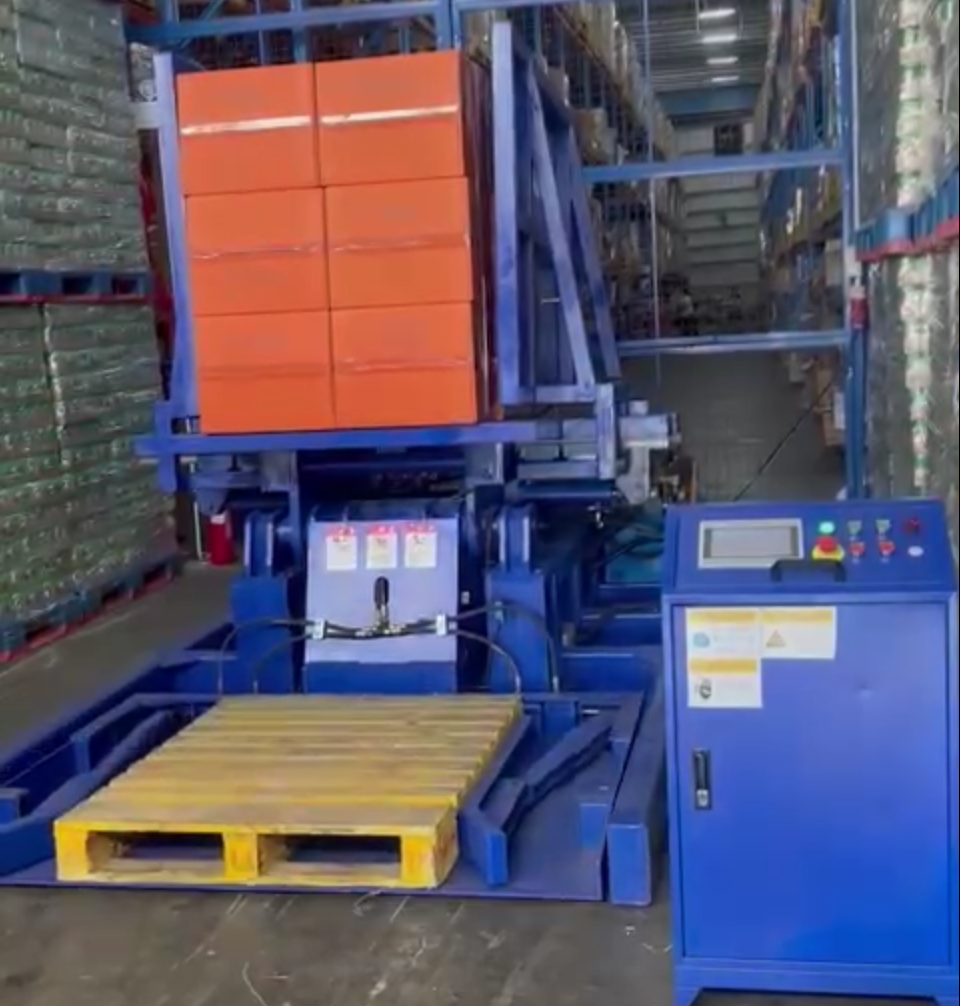
3. What Are the Key Features to Consider in Pallet Exchanger Machines?
3.1 Customization and Adaptability in Design
When choosing a pallet exchanger, it’s vital to consider the level of customization available to suit your specific needs. A one-size-fits-all machine may not be ideal for industries with varying pallet sizes or loads. The ability to customize the design, such as altering the machine’s height, width, or load capacity, can drastically improve its performance and the overall workflow in your facility. Adaptability in design isn’t just about size; it also refers to the machine's ability to accommodate different materials and types of pallets, whether they are wood, plastic, or metal.
A customizable pallet exchanger offers a significant advantage because it grows with your business. As your operations expand or your needs evolve, the machine can be adjusted to meet these new requirements without the need to purchase new equipment. Many manufacturers now offer modular designs that allow you to add or remove components, giving you the flexibility to reconfigure the system as needed.
3.2 How Do Automation Features Enhance Performance?
Automation is at the heart of what makes pallet exchangers so beneficial in industrial environments. Many modern pallet exchangers come with advanced automation features that not only speed up the pallet changing process but also improve consistency and accuracy. These features include programmable settings, sensors, and smart controls that ensure smooth operation with minimal operator intervention.
By automating the process, pallet exchangers reduce the reliance on manual labor, which, in turn, minimizes the risk of human error. Automation also ensures that each exchange happens under optimal conditions, preventing mistakes that could lead to delays or product damage. Moreover, with modern technology, automation allows the pallet exchanger to adjust based on the type of product being handled, providing further flexibility. For businesses, this means fewer bottlenecks, faster throughput, and more consistent results.
3.3 What Safety Features Should Be Included?
Safety should never be compromised, especially in industrial environments where the risk of injury is high. A good pallet exchanger manufacturer understands the importance of implementing safety features that protect both workers and the machine itself. Look for machines equipped with automatic safety shutdowns, emergency stop buttons, and guards that prevent accidental exposure to moving parts.
Additionally, ergonomic design elements can reduce the physical strain on workers, minimizing the risk of injury when loading or unloading pallets. Many modern pallet exchangers feature advanced safety sensors that detect obstacles or irregularities, preventing accidents before they occur. By incorporating these critical safety measures, manufacturers not only protect their employees but also reduce the risk of costly work stoppages due to accidents or safety violations.
4. What Role Does After-Sales Support Play in Your Decision?
4.1 Is the Manufacturer’s Support Network Sufficient?
After-sales support is one of the most important factors to consider when choosing a pallet exchanger manufacturer. No matter how reliable the machine, there will always be times when issues arise or maintenance is required. A strong after-sales support system ensures that you have access to the help you need, when you need it.
Look for manufacturers that offer comprehensive warranties, regular maintenance schedules, and responsive customer service. An efficient support network can help you minimize downtime by ensuring that parts are readily available, and technicians are available to assist with repairs. Manufacturers who provide remote support or troubleshooting services add an extra layer of convenience and reassurance, particularly in industries where operational continuity is critical.
4.2 What Training and Resources Are Available?
Investing in a pallet exchanger is just the first step. The second step is ensuring that your team is trained to use the machine effectively and safely. Top-tier manufacturers often offer training programs to ensure that operators are fully equipped to handle the machinery. These programs can include on-site training, online tutorials, and manuals that explain the machine’s operation and troubleshooting techniques.
Having access to well-documented resources like troubleshooting guides and operating manuals can further reduce downtime and help workers maintain the equipment without relying on external support. Additionally, some manufacturers offer refresher courses or ongoing support to ensure that your team stays up to date with any software or feature updates.
4.3 How Does the Manufacturer Handle Spare Parts?
Another crucial aspect of after-sales support is the availability and accessibility of spare parts. A manufacturer that offers easy access to parts, either through an online store or a local dealer network, can save you significant time and money when components need replacing. Furthermore, look for manufacturers who ensure that their parts are standardized and available even years after the machine was purchased.
It’s also beneficial to choose a manufacturer that offers preventative maintenance plans to keep your pallet exchanger running smoothly. Regular checkups from the manufacturer can identify wear and tear before it becomes a significant issue, saving you from costly repairs and extending the life of your equipment.
Conclusion
Choosing the right pallet exchanger manufacturer is a multifaceted decision that requires careful consideration of a variety of factors. From understanding the manufacturer’s reputation to evaluating the key features that enhance operational efficiency, each element plays a crucial role in ensuring that your investment will deliver long-term value.
The right manufacturer will not only provide you with a high-quality, customizable machine but also offer robust after-sales support to ensure continued success. As automation and efficiency become increasingly critical in today’s competitive landscape, a pallet exchanger can be the key to reducing costs, improving safety, and enhancing productivity. So, take your time, weigh the options, and choose wisely – your business will thank you for it in the years to come.
